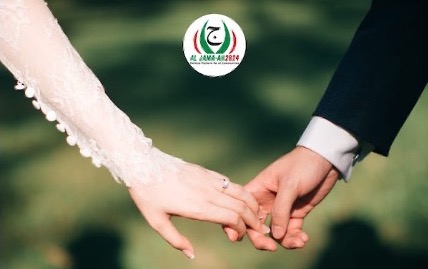The Al Jama-Ah political party is introducing two private members’ bills to parliament seeking to change divorce and marriage registration laws in the country.
The party’s leader, Mogamad Ganief Hendricks, has gazetted notice to introduce the Divorce Amendment Bill seeking to adjust regulations governing the dissolution of a Muslim marriage.
Meanwhile, the Registration of Muslim Marriages Bill has been introduced to parliament, seeking recognition of Muslim marriages in law.
The notice for Divorce Amendment Bill is currently open for public comment until 17 December, while the Registration of Muslim Marriages Bill was introduced last week (24 November) and needs to make its way to the portfolio committee before heading to National Assembly.
Hendricks told Parliament that parties in Muslim marriages and homes have suffered and been left broken because they are cut off from remedies available in the Divorce Act upon dissolution of their marriage.
A recent Constitutional Court case of Women’s Legal Centre Trust v President of the Republic of South Africa and Others found that the Marriage Act alongside the Divorce Act were inconsistent with sections 9, 10, 28 and 34 of the constitution in that they failed to recognise marriages solemnised in accordance with Sharia law (Muslim marriages).
Marriages solemnised under Sharia law are not registered as valid civil marriages in South Africa.
While the Constitutional Court has given parliament until November 2024 to correct the country’s laws – and new laws are currently being drafted to make these corrections – this leaves Muslims without immediate relief.
Hendricks said important remedies contained in the current Divorce Act ensure the protection of the interests of parties dissolving their marriage and the welfare of dependant children through access to maintenance during and after divorce.
Despite such provisions being present in the current divorce laws, Muslim marriages are excluded, creating vulnerabilities for parties in a Muslim marriage and their children, including risks of violence, economic exploitation and more, said Hendricks.
The new private member’s bill seeks to address the following constitutional discrepancies:
- Section 6 of the Divorce Act – The court ruled that section 6 was declared unconstitutional in that it failed to provide for safeguard and welfare mechanisms for dependant children born of Muslim marriages at the time of dissolution.
- Section 7(3) of the Divorce Act – The section fails to provide for the redistribution of assets on the dissolution of a Muslim marriage when such a redistribution would be just.
- Section 9(1) of the Divorce Act – This provision was declared unconstitutional in that it fails to provide for the forfeiture of patrimonial benefits stemming from a Muslim marriage at the time of its dissolution.
According to Hendricks, the newly proposed draft bill provides an “effective, expedient and timely remedy to amend the Divorce Act and to bring it in line with [the] Consitution.”
It also forms part of the movement to give Muslim marriages the legal recognition they deserve.
Marriage changes
Al Jama-Ah is also applying the same immediate-relief policy to various laws around marriage.
The Registration of Muslim Marriages Bill is another private members bill that aims to recognise a Muslim marriage as valid and bindig in in the eyes of the law – among other things.
Notably, the bill notes that it has a limited duration and makes provision for the laws to be repealed upon the commencement of an Act of Parliament regulating the registration, recognition, solemnisation, proprietary consequences and dissolution, and consequences of the dissolution of Muslim marriages.
Broadly, the bill aims to provide for the following:
- The requirements of a valid Muslim marriage, including solemnisation thereof;
- The recognition of a Muslim marriage as a valid and binding contract of marriage;
- The registration of Muslim marriages as valid marriages for all purposes in the Republic of South Africa;
- The proprietary consequences of a Muslim marriage;
- Equal status and legal capacity of spouses in a Muslim marriage;
- Acknowledging the application of other existing domestic legislation to Muslim marriages in specified circumstances.
The original Muslim Marriages Bill was introduced in 2010 to address inequalities; however, the government has not yet passed the bill. The Department of Home Affairs has made it clear that it intends to update and draft new marriage laws for approval in 2023.
Under current legislation, there is no overarching policy rooted in constitutional values – the government now wants to have one single bill that governs all types of marriages.
Currently, marriages in South Africa are regulated by three separate pieces of legislation:
- The Marriage Act – for monogamous marriages for opposite-sex couples
- The Recognition of Customary Marriages Act (RCMA) – provides for polygamous marriages of opposite-sex couples
- The Civil Union Act – provides for monogamous partnerships for both same and opposite-sex couples.
Notice of Divorce Act amendments | Download PDF here
Muslim Marriages Bill | Download PDF here
Read full article published in Business Tech | 28 November 2022 here


